Filling the Prescription for Better Medical Equipment
The Africa Medical Equipment Facility helps local clinics and hospitals purchase medical equipment to serve their patients.
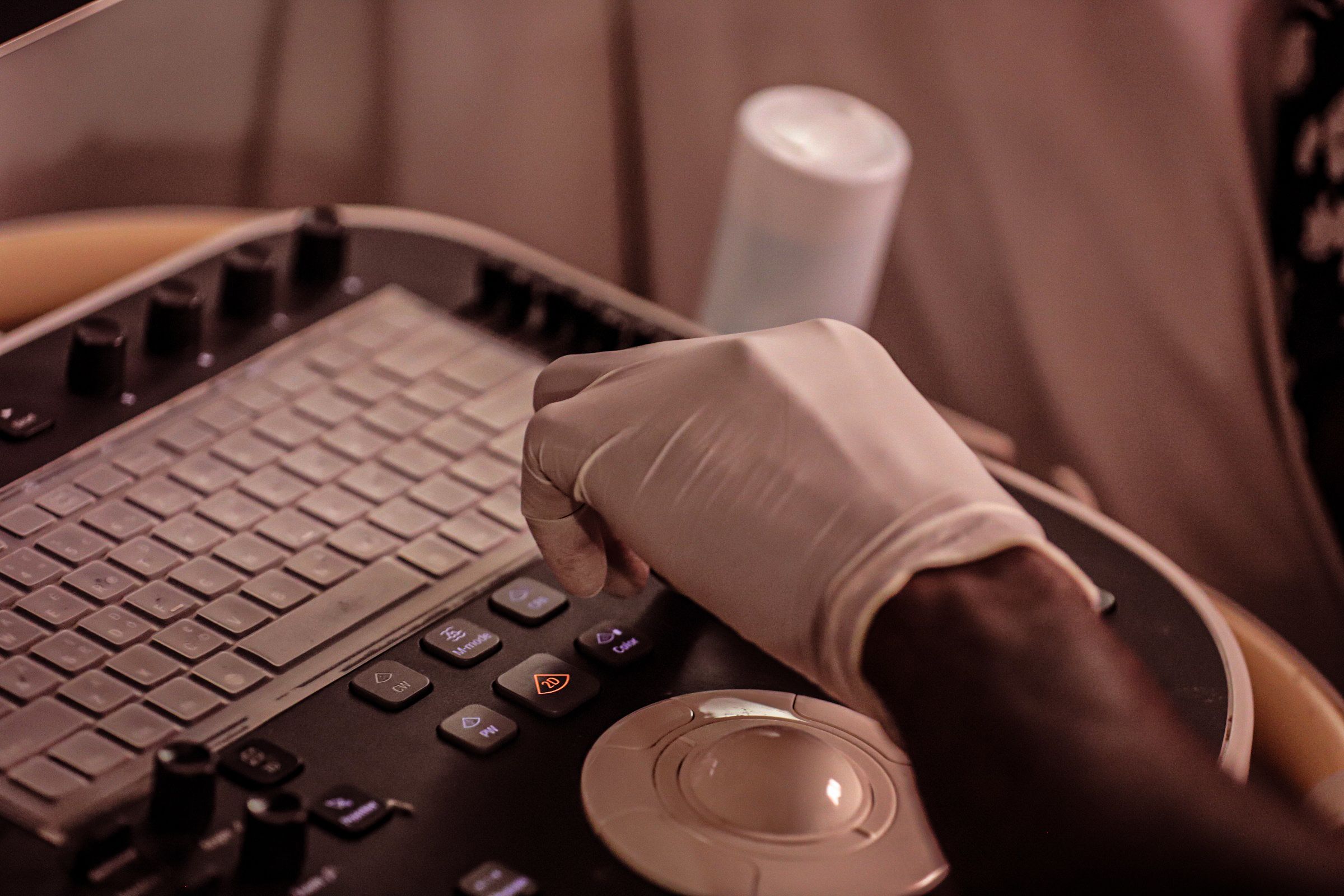
The shrieks of newborn babies don’t bother Ariane Kouassi Coulibali. In fact, she’d love to welcome more newborns to the clinic in Abidjan, Côte d’Ivoire, where she works as a midwife.
“It’s fantastic to see a screaming baby who is healthy,” she says.
But delivering a healthy baby requires good prenatal care, including ultrasound machines. They are in short supply in Côte d’Ivoire and most other countries in Africa. There are also very few scanners and MRIs, one of the most widely used imaging modalities in developed countries. In Côte d’Ivoire, for example, there is one MRI machine per 1.5 million people. (By comparison, the U.S. has 38 MRI machines per 1 million people; Brazil has 14.9 MRI machines per 1 million people; and Türkiye has 11.4 MRI machines per 1 million people, according to the OECD.)
Clinics like Coulibali’s often struggle to purchase medical equipment that delivers quality health services to patients. Cost is the culprit: A typical MRI scanner can cost around $1 million to $1.5 million. Without the backing of a bank loan, medical equipment is frequently out of reach for medical centers and clinics in sub-Saharan Africa. Some equipment manufacturers are also unfamiliar with the African market and unsure about the financing risk, limiting the sale of their equipment in these countries.
The result? Many Africans can’t access health care services; surgeries, exams, and treatments are often cancelled or delayed; and stays in health facilities are prolonged. Sometimes patients must travel long distances to get the care they need, according to Jean-Claude Kouassi, Financial Manager at the Central Polyclinic of Abobo. That can be a medically risky and difficult proposition for patients who require urgent care.
To offer Africans greater access to medical equipment, IFC has partnered with financial institutions in Africa and medical equipment manufacturers worldwide to create the Africa Medical Equipment Facility (AMEF). The program helps small and medium-sized healthcare providers in East and West Africa secure local-currency loans to purchase or lease needed medical equipment.
The financing facility is complemented by an advisory services program to help small healthcare businesses improve their medical equipment procurement processes, financial management, and business planning.
At the Central Polyclinic of Abobo—the first clinic in Cote d’Ivoire to receive a loan from AMEF—it’s already making a difference, Kouassi says. “It is a value for us to acquire this equipment, instead of [sending patients] to other parts of the city.”
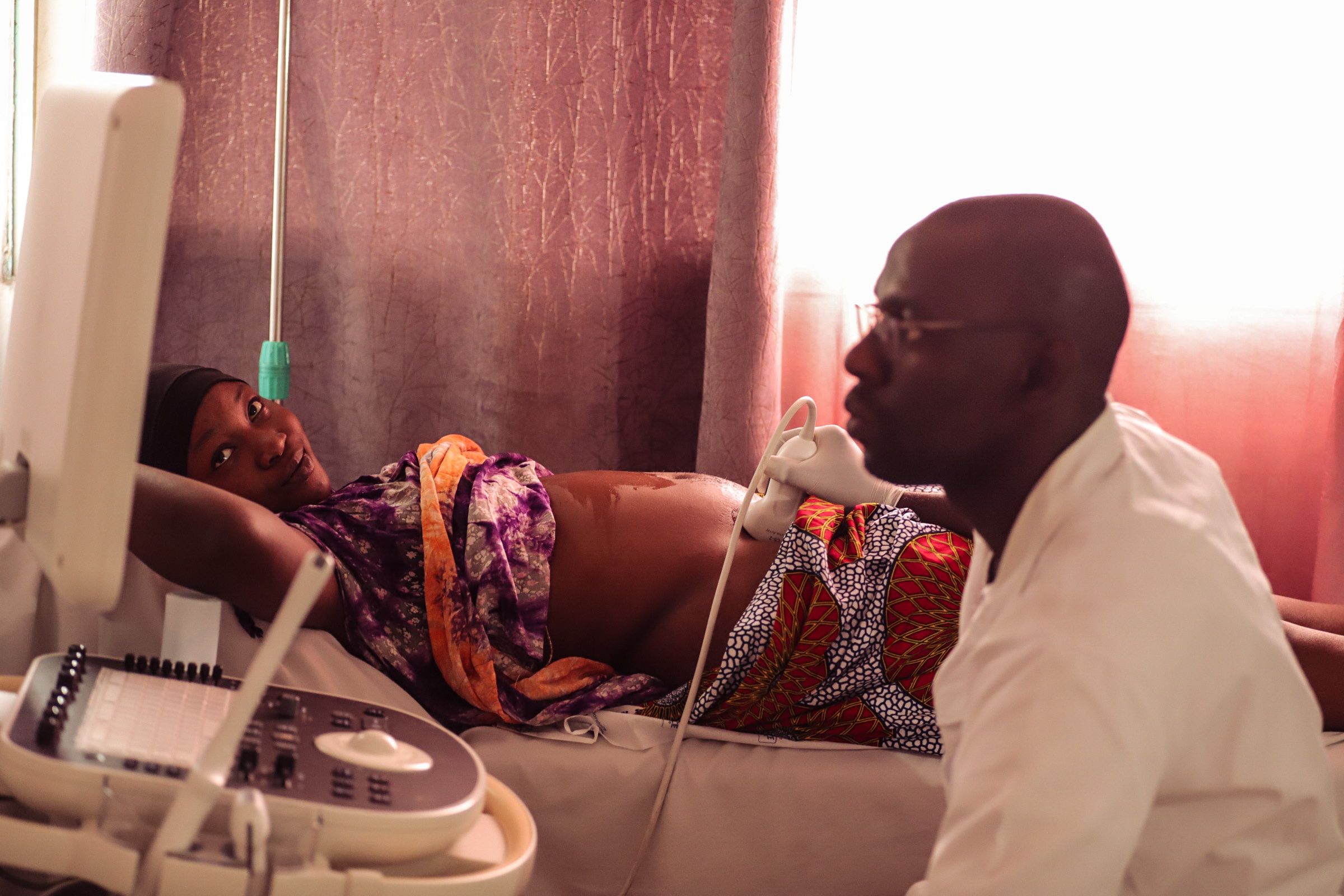
Ultrasound machines are in short supply in Côte d’Ivoire and most other countries in Africa.
Ultrasound machines are in short supply in Côte d’Ivoire and most other countries in Africa.
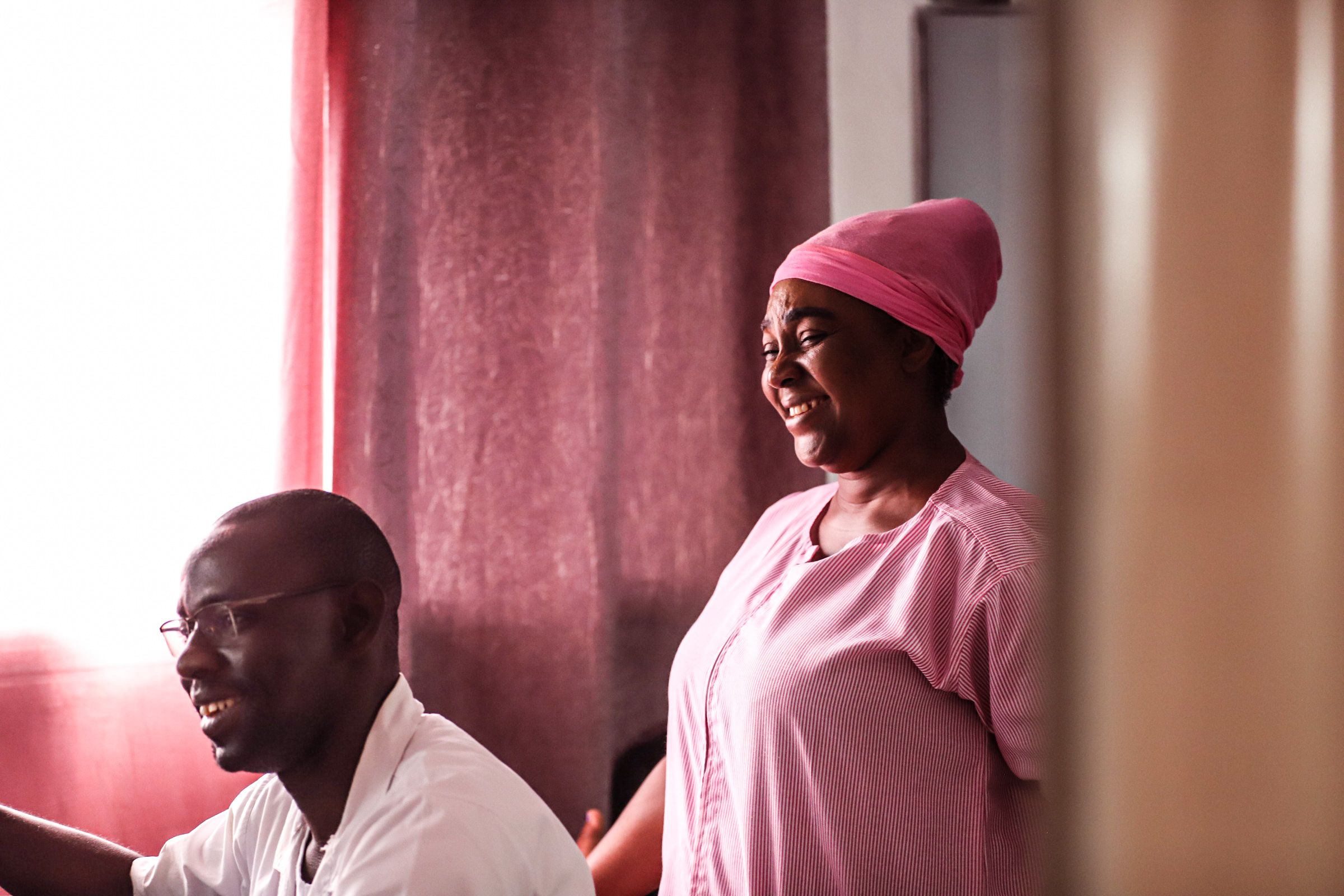
Transforming access to care
Access to advanced medical imaging with MRI is linked directly to improving health care provision in developing nations, according to the Pan African Medical Journal.
Private-sector partnerships like the AMEF can help improve the lives of people who need better access to this equipment and to general health care, according to Bas Rozemuller, program manager for the AMEF at IFC.
Such partnerships are necessary because $25 to $30 billion in new investment will be needed in health care assets, including hospitals, clinics, and distribution warehouses, to meet growing health care demands in sub-Saharan Africa, IFC research shows.[AB3] [BR4]
The AMEF initiative focuses on the lack of health care access within sub-Saharan Africa because the region accounts for 11 percent of the world’s population, yet bears 24 percent of the global disease burden and commands less than one percent of global health expenditure. It also faces a severe shortage of trained medical personnel, with just three percent of the world’s health workers deployed in sub-Saharan Africa.
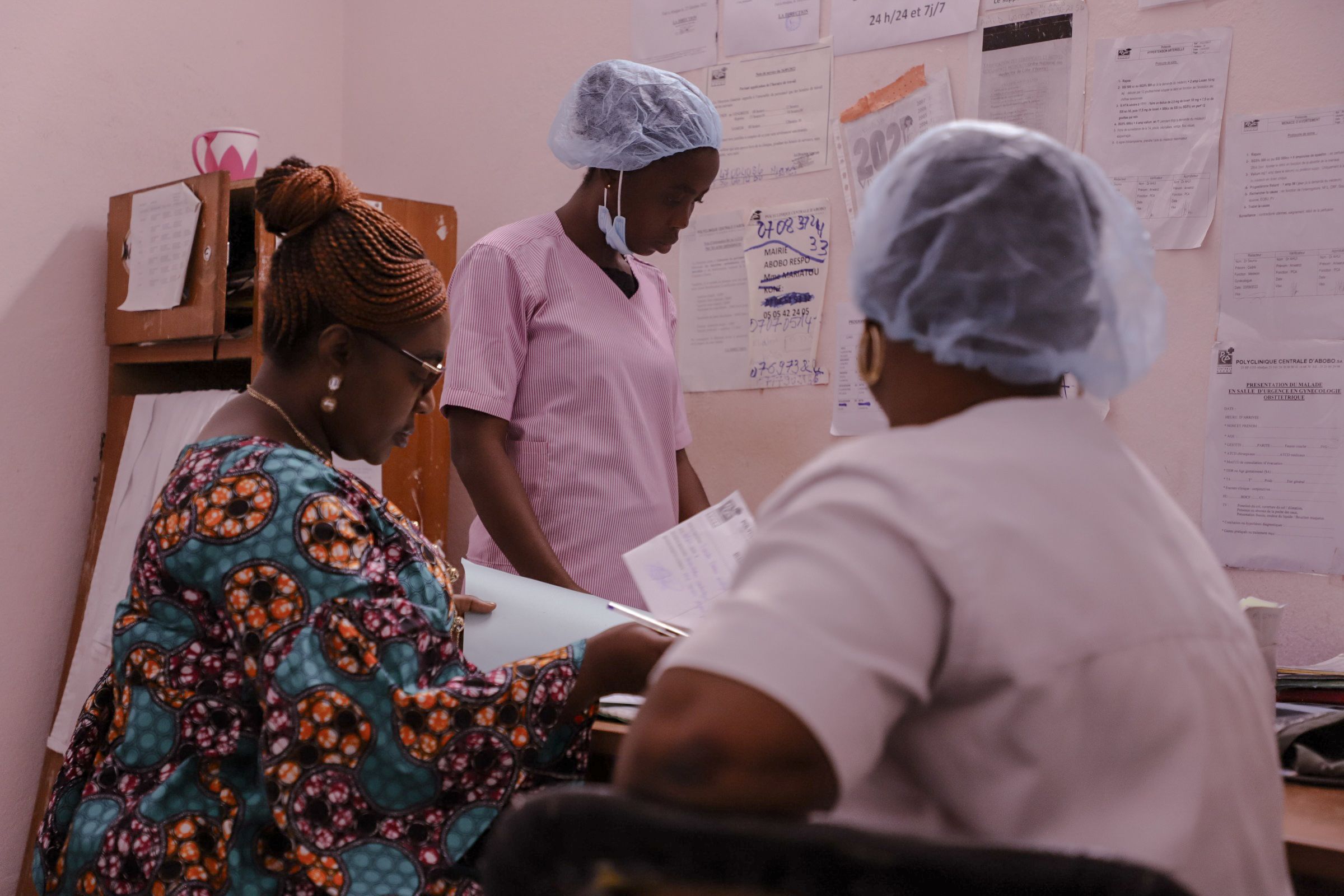
A health quality assessment, part of the AMEF's advisory services, led to advice that improved health quality practices at the clinic.
A health quality assessment, part of the AMEF's advisory services, led to advice that improved health quality practices at the clinic.
Access to medical equipment may also affect the retention of health care workers. In sub-Saharan Africa, nurses have raised concerns about losing skills and knowledge as they do not have access to the latest equipment and technologies, according to one study.
As of September 2023, 10 equipment manufacturers have signed on with the AMEF. For many clinics, however, acquiring this specialized medical equipment is just the start. AMEF’s advisory services can improve small healthcare businesses’ medical equipment procurement processes, financial management, and business planning.
At the Central Polyclinic of Abobo, which has received an MRI machine, a scanner, and a Doppler ultrasound, AMEF advisory services have also been important. Guidance supported the design and installation of equipment, and a health quality assessment also led to advice that improved health quality practices at the clinic.
Ariane Kouassi Coulibali, the midwife at the clinic, has noticed how the new equipment has transformed patients’ access to health care.
“People are coming from Abobo, Angre, even the Riviera [and] Yopougon” for services, she says, noting areas as far as 30 kilometers away—significant trips in the city's heavy traffic. She believes that the demand will continue to grow as the clinic’s offerings increase.
“The clinic is always under construction,” she says. “They are always looking for something better.”
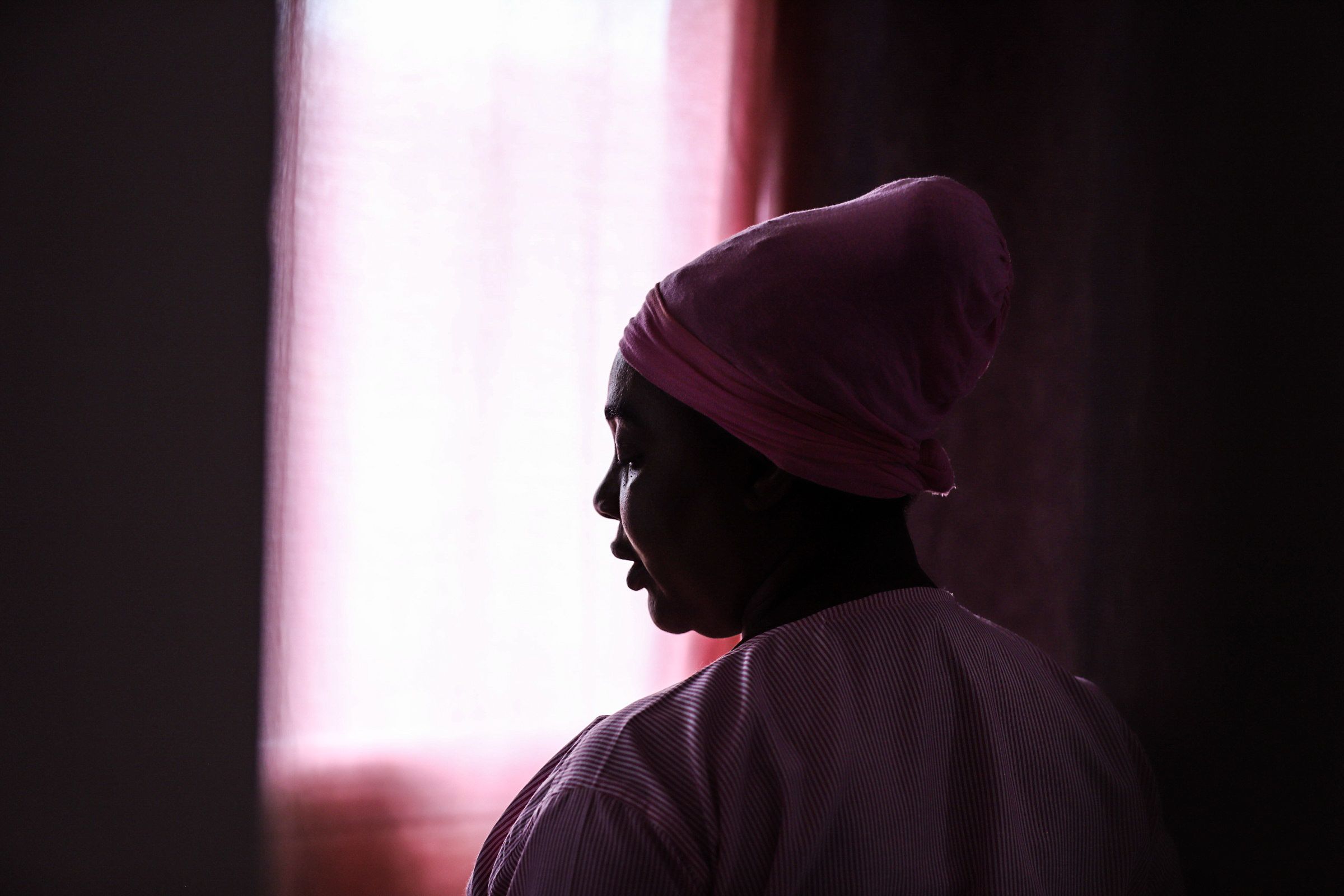
Demands for the clinic's services will grow as its offerings increase, Ariane Kouassi Coulibali believes.
Demands for the clinic's services will grow as its offerings increase, Ariane Kouassi Coulibali believes.
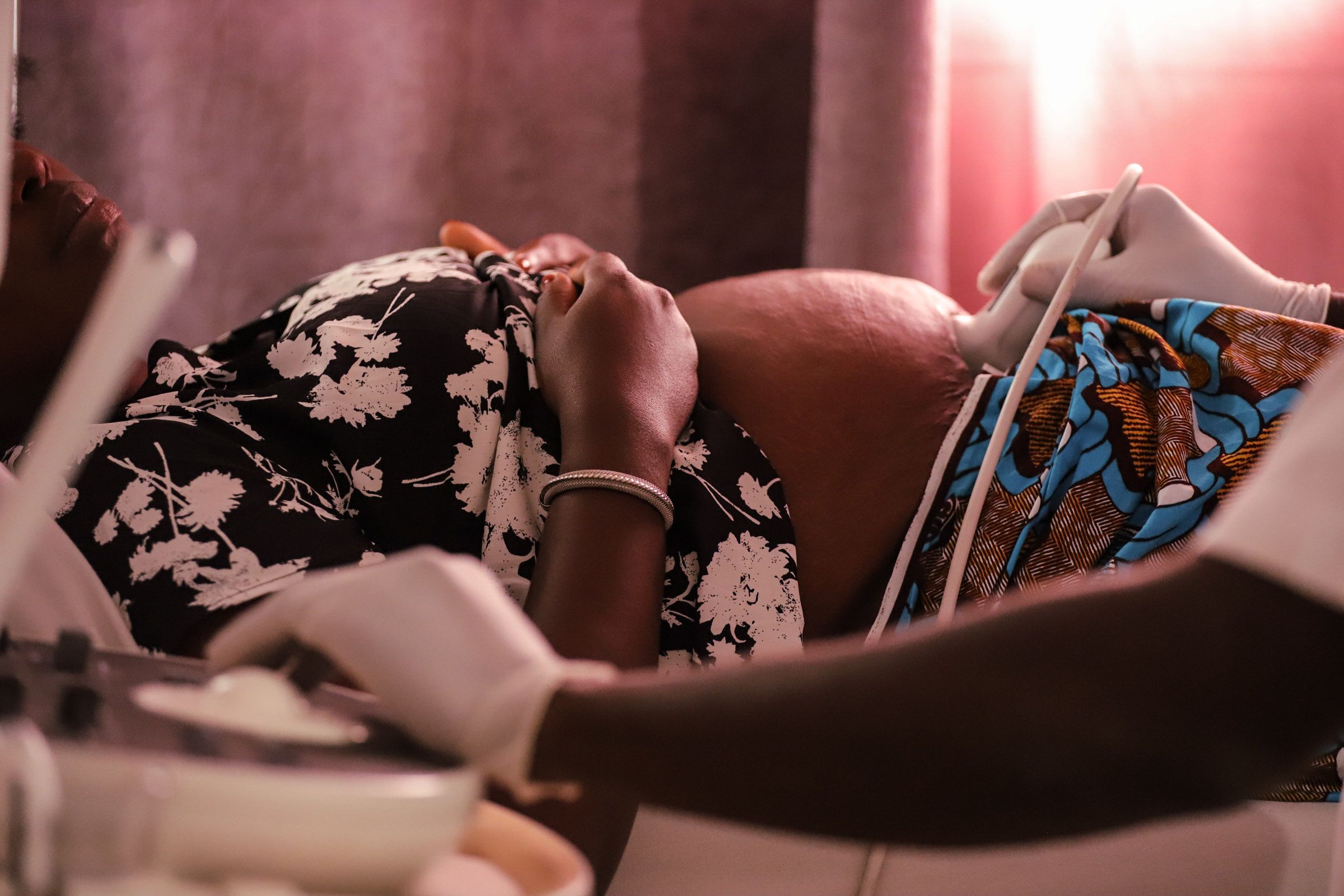
Published in December 2023.
The AMEF is supported by the Government of Norway, the International Development Association Private Sector Window (IDA-PSW) Blended Finance Facility and the Global Financing Facility for Women, Children and Adolescents (GFF), and is part IFC's Global Health Platform, which was launched to help developing countries fight the coronavirus pandemic and increase their healthcare systems' resilience.